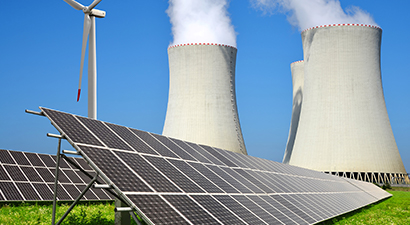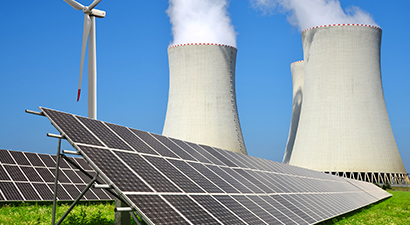National Pollution Prevention Plans Regulations & Declaration of GHGs as Priority Air Pollutants (published for comment)
The Minister of Environmental Affairs has published two related pieces of legislation for comment under the National Environmental Management: Air Quality Act 39 of 2004, namely:
- Declaration of Greenhouse Gases (GHGs) as Priority Air Pollutants*
- National Pollution Prevention Plans Regulations, 2015
The following six greenhouse gases (GHGs) are to be declared as priority air pollutants:
- Carbon dioxide (C02)
- Methane (CH4)
- Nitrous oxide (N20)
- Hydrofluorocarbons (HFCs)
- Perfluorocarbons (PFCs)
- Sulphur hexafluoride (SFG)
Annexure A of the Declaration Notice lists the following production processes:
- Coal mining
- Production and/or refining of crude oil
- Production and/or processing of natural gas
- Production of liquid fuels from coal or gas
- Cement production
- Glass production
- Ammonia production
- Nitric acid production
- Carbon black production
- Iron and steel production
- Ferro-alloys production
- Aluminium production
- Polymers production
- Pulp and paper production
- Electricity Production (combustion of fossil fuels, excluding the use of back-up generators)
Persons undertaking one or more of these processes, which either:
- involves the direct emission of GHGs declared as priority air pollutants in excess of 0.1 Megatonnes (Mt) annually (measured as carbon dioxide equivalents (C02-eq)); or
- is undertaken as a primary activity
must prepare and submit a pollution prevention plan according to the National Pollution Prevention Plans Regulations and thereafter monitor, evaluate and report on the implementation of the plan.
The Regulations prescribe the contents of a pollution prevention plan. They also require that the plan must be submitted to the Minister within three months after the Notice declaring greenhouse gases as priority pollutants comes into effect. Once approved by the Minister, the plan will be valid for a period of 5 years and must be reviewed every 5 years.
In addition, the company must monitor and evaluate implementation of the approved pollution prevention plan and submit a progress report to the Minister by 31 March each year for the preceding calendar year.
Failure to submit a pollution prevention plan or an annual progress report, and providing false or misleading information to the Minister are all offences in terms of the Regulations and a person convicted of such an offence will be liable in the case of a first conviction to a fine not exceeding five million rand, or to imprisonment for a period not exceeding five years and in the case of a second or subsequent conviction, to a fine not exceeding R10 million or imprisonment for a period not exceeding 10 years.
* Relevance to the Carbon Tax Bill
The Annexure in the Declaration Notice is of relevance to the draft Carbon Tax Bill that was published for comment on 2 November 2015. Persons who conduct an activity listed in the Annexure 1 (presumably Annexure A) and which emits GHGs, will be liable for the carbon tax.
The comment periods for both the Declaration Notice and the Regulations close on 8 February 2016.





